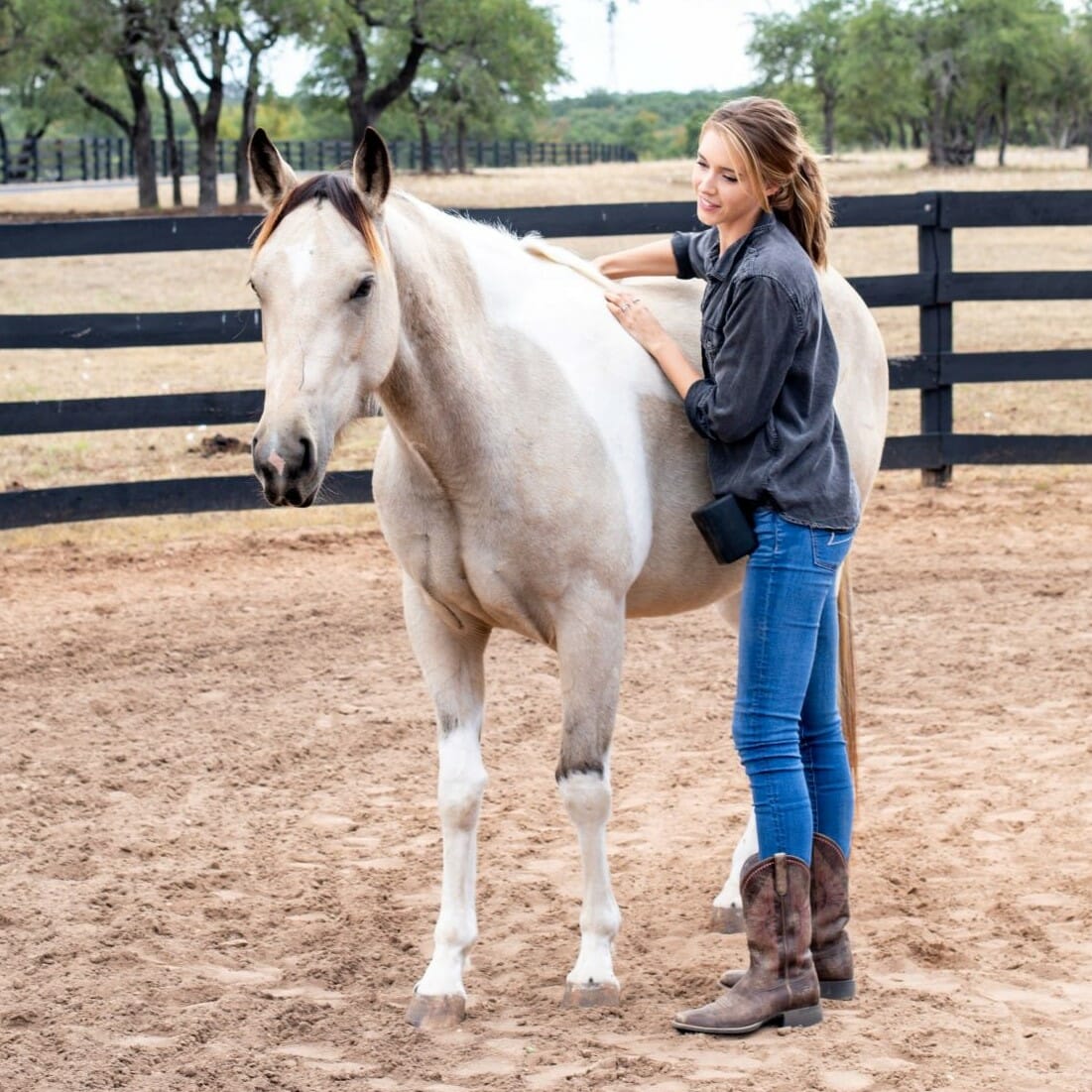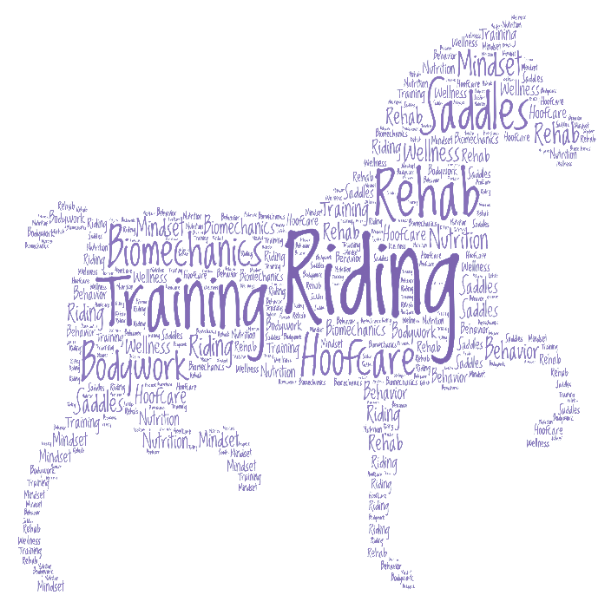A Proactive and Positive Approach to Caring for Horses – Part 1
By Adele Shaw
Vet visits, farrier appointments, dental care, soaking hooves, wound bandaging, getting oral deworming paste… these are all very common events in a horse’s life. Yet, we often spend the least amount of time preparing our horses for these moments. We are quick to set these aside for more exciting things, like riding, but this can leave us in a bit of a pickle when it comes time for a vet visit or wound care after some roughhousing in the pasture.
Can you imagine how much more enjoyable and safe it would be if your horse stood quietly for their vet or farrier appointments? Can you picture what it would be like to give your horse oral medication without it being a battle of wills? How nice would it be if your horse would see a soaking bucket and place their foot into it nicely without fuss, or having to refill a dumped bucket multiple times? What a dream!
We dream of these things, but we don’t really spend time training for them! We spend year after year dreading annual shots, knowing full well Brownie is going to have a meltdown when they see the vet, and it never gets better. It’s just like the saying goes. “The definition of insanity is doing the same thing over and over and expecting a different result”.
It might be easy to dismiss things as just “the way Brownie is”, but Brownie is only that way because of their learning history. They have at one point had an experience with any of the above mentioned scenarios, and it’s either been frightening or painful for them, and so they don’t wish to repeat it. Can you blame them? For young horses or horses with minimal handling, in the absence of being shown what TO do, we are setting our horses up for failure and putting everyone in a dangerous position.
It doesn’t have to be that way. We can make it safe for everyone involved. And we can make it fun for both you and your horse. Training for care procedures can be just as enjoyable as heading out on the trail with your friends.
A Cooperative Approach
Cooperative care is an area of training where the focus is on teaching horses how to cooperate willingly in their own care. Through strategy, understanding learning, the power of choice and control for the learner, and the use of positive reinforcement we can teach our horses to look at events, like getting shots, as an exciting opportunity rather than something to dread.
Cooperative care is an important and powerful training technique that can strengthen your relationship with your horse, keep the professionals working with your horse happy and safe, and make previously stressful interactions with your horse a WHOLE lot more enjoyable.
In both the above video and the one below you can see horses learning to take oral medication cooperatively and free of any restraint. They are not trapped, have the easy ability to walk away, and have other forage options available as an alternative should they really find the training unpleasant.
When training for cooperative care behaviors, we start off asking the horse to do a level of the behavior that is easy for them to achieve and doesn’t cause fear or worry. For oral medications, it may just be bringing an empty tube out at first. When they look at it, we reinforce this engagement with a click (a marker sound that tells the horse they “did it” and reinforcement is coming), remove the tube, and then feed with a few hay pellets. This process is repeated, gradually increasing how much the horse is able to do before the click and reinforcement, over multiple training sessions of a few minutes each.
Very quickly horses that have been very reactive and dangerous to give oral medications to become willing partners in the experience!
In the above video you can see an example of working with a mini pony that was very reactive to having his ears touched. With a cooperative care approach I was able to successfully teach him to touch his ears to my hands on cue, which then quickly progressed to being able to rub them and even treat them with medication should the need arise.
The trick is to work on these behaviors ahead of time, so you aren’t up against the clock and dealing with a real emergency. With the mini pony I knew he was sensitive to having his ears touched, and tick season would be coming up, so we began preparing long before I would need to actually remove ticks from his ears. Had I waited until he actually had gotten a tick, or needed to put medication into his ears, we would have needed to force him to allow us to treat him. This would have likely made the situation very stressful and dangerous for all involved, and he certainly would be even less likely to allow his ears to be cared for in the future!
By doing the work ahead of time and using a cooperative approach, he now stands completely at liberty (free of equipment) and allows his ears to be cared for even when they are uncomfortable.
Some other areas to use a cooperative approach
- Leg or other wound bandaging
- Hoof soaking
- Temperature checks
- Oral exams
- Hoof cleaning and medicating
- Receiving injections
- Standing for x-rays
- Trailer loading
- Lameness exams
- Eye exams and treatment
- Bathing/cleaning
- Fly spray or other spraying
- And so much more!
Where to get started
It’s not difficult to teach your horses to use a cooperative approach for every day handling and medical care situations. It does however require preparation, an educated handler, understanding behavior and learning, and some patience. A good place to start is with a youtube search of “cooperative care training” and you can add “horses” to that search as well. You will find a lot of dog and exotic animal training videos, which are fantastic to draw inspiration from!
What if there isn’t time to prepare ahead?
As much as we would of course like to prepare for everything ahead of time, and have our horses completely cooperative through all handling, emergencies and situations happen where we do not have that ability. In part two, we are going to talk about how to set both you and your horse up for success, which will apply whether you have time to prepare ahead or not.
We will dive into the everyday “practical” changes you can make that result in a much more relaxed and successful experience. This will be especially useful for those who are not in a position to train the horse ahead of time for their medical care.
Next up (exclusively available for Equitopia members):
Part 2: Adele shares 5 ways to set both you and your horse up for success.
Part 3: Adele offers suggestions and tips for finding like minded professionals
Not a member of Equitopia yet? Take a look here – for just $4.95/month, we work hard to deliver a high value program of content each month https://www.equitopiacenter.com/membership/







